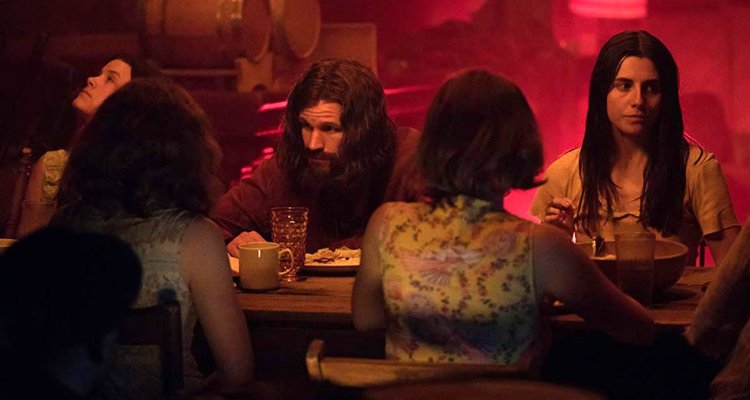Director Mary Harron is best known for bringing one of fiction’s most notorious killers to the screen with Patrick Bateman in “American Psycho,” and now she’s focusing on one of the real world’s most infamous villains. But while Charlie Manson is the figure ostensibly at the heart of “Charlie Says,” Harron and screenwriter Guinevere Turner center their story more on a trio of women who devoted themselves to the charismatic cult leader, sharing their experience with Manson as well as in prison for the crimes they committed at his command. While Harron’s drama thankfully doesn’t glorify or romanticize the murders, it also – for better and for worse – refuses to judge these three women, resulting in bland, sometimes dull film, which is actually shocking given both the film and its sensationalistic subject.
READ MORE: The 100 Most Anticipated Films Of 2019
We get the most insight into Leslie Van Houten (Hannah Murray), a relative latecomer to Spahn Ranch, where Manson (Matt Smith) houses a cult of female admirers and a few men, including Tex Watson (Chace Crawford). “You guys got a weird scene going on up here, man,” says a new arrival of the community’s … odd dynamic, fueled by misogyny, group sex, and Charlie’s rants. Leslie is compelled by the messianic musician, who wants to be famous and sees a race war on the horizon. “Charlie Says” weaves between 1969, as the notorious murders inch closer, and 1972, where Leslie, Patricia Krenwinkel (Sosie Bacon), and Susan Atkins (Marianne Rendón) are in isolation at the California Institute for Women for their involvement in the Manson Family crimes.
READ MORE: Tribeca Film Festival: 15 Must-See Movies
Despite their isolation, Warden Virginia Carlson (Annabeth Gish) allows them to take part in the prison’s educational program, and activist and grad student Karlene Faith (Merritt Wever) begins to teach them. Karlene assigns them feminist reading, but she also begins to learn more about their experiences with Manson. Despite the years that have passed since they saw him, Manson still holds a place in the women’s hearts and minds as a touchpoint for every conversation and decision.
We’ve only seen the first trailer for Quentin Tarantino‘s “Once Upon a Time in Hollywood,” which will touch on the Manson murders. “Charlie Says” smartly beats that film to the screen, though its focus is far more singular. For those who’ve read “Helter Skelter” or listened to Katrina Longworth‘s season devoted to the murders on the “You Must Remember This” podcast, there won’t be a ton of new revelations here, and newcomers might miss the importance of the major players in its speedy approach to history. The prison scenes are most interesting, as they dwell on the post-Family events in ways that haven’t been given much attention in the past. “Charlie Says” is ultimately a sympathetic film to at least Leslie, particularly in its final moments that may garner an eye roll from the less easily swayed in the audience. Little attention is paid to victims, spending about as much time with them as these women did before they killed them.
Smith is miscast as Manson, and not just because he has almost a foot on the murderer. He resembles Manson as much as any man in a shaggy hair and beard would, but the issue isn’t his lack of physical resemblance to the person he’s playing. Instead, there’s little in the performance that points to why these three women and others would have not only given up everything they knew to follow him but also literally kill for him. Wever is as strong as ever in a role that requires her to show empathy for the three prisoners while being horrified by both what they did and their mistreatment by Charlie. Murray, best known as Gilly on “Game of Thrones,” isn’t the most compelling actress here, but her Leslie is supposed to be an impressionable blank slate, so she’s easily able to take Charlie’s stamp.
Despite taking a different angle to the much-discussed crimes, “Charlie Says” still feels shallow in its approach. Those unfamiliar with the history of the Manson Family murders won’t gain any real understanding of the crimes or the character of those who committed them, while those who know the details won’t get any new insights into it either. Harron’s lens should have been the draw here, but there’s little evidence of her fingerprints on this bland film. [C-]
Follow along with all our coverage from the 2019 Tribeca Film Festival here.

